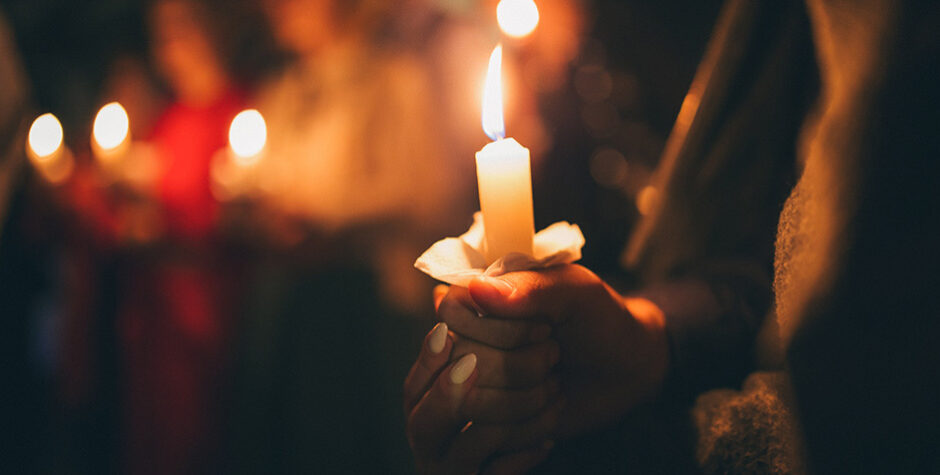Cancel Culture Comes for Prayer – ACLJ Appeals Lower Court’s Flawed Ruling Finding City Officials’ Support for Community Prayer Vigil Unconstitutional
Last week, and just before the celebration of our nation’s Declaration of Independence, the ACLJ filed our opening brief on behalf of the City of Ocala, Florida, in the Eleventh Circuit Court of Appeals to preserve our first freedom: religious liberty.
Specifically, we are challenging a district court ruling declaring that government officials can no longer encourage citizens to pray amid a difficult time in their community, and volunteer chaplains can no longer lead those in their community in a time of prayer.
In 2014, the City of Ocala experienced a crime spree resulting in injury to several children. The police knew the identity of the shooters but could not persuade witnesses to come forward to testify. Consistent with community policing standards regularly employed by the City’s police department, Chief Graham met with local NAACP leaders who suggested the police department reach out to the local faith-based community for help in persuading witnesses to come forward. Chief Graham did just that.
In response, community leaders decided to hold a community prayer vigil. The vigil was planned and organized by private citizens. Volunteer chaplains, along with private citizens, led the vigil that was widely supported and well attended. At the request of the organizers for the event, Chief Graham posted a letter encouraging unity and prayer and attendance at the vigil. Atheists, offended by the idea of prayer at the vigil, demanded City officials cancel the event. Despite City officials’ continued explanation that it could not cancel a privately organized event, the atheists cried foul and later sued the City for allegedly promoting the vigil.
As we told you then, the ACLJ quickly took action, agreeing to represent the City of Ocala, FL. Yet a federal district court found for the atheists. So we appealed to the Eleventh Circuit Court of Appeals. As we explain in our opening brief on appeal, the district court’s ruling flies in the face of America’s long-time tradition of calling for prayer – a freedom our Founders sought to secure, rather than prohibit, through the passage of the First Amendment:
Even assuming the Court reaches the merits, Defendants’ actions do not violate the Establishment Clause. Supreme Court precedent is clear that the present case should be analyzed pursuant to legislative prayer jurisprudence, which affirms that Defendants’ actions in encouraging citizens to gather for prayer following a crime spree is consistent with tradition long followed in our Nation.
Time and again, the Supreme Court has upheld government involvement in and/or association with prayer including legislative prayer, prayer in the military, prayers offered by chaplains, and calls to prayer following a crime spree or other tragic event. See Am. Legion v. Am. Humanist Ass’n, 139 S. Ct. 2067, 2088 (2019) (Gorsuch, J. concurring) (“[T]he Establishment Clause permits a nondiscriminatory practice of prayer at the beginning of a town council session.”); Marsh, 463 U.S. at 793 (upholding legislature’s practice of opening sessions with a prayer offered by a chaplain paid with public funds). “Simply having religious content or promoting a message consistent with a religious doctrine does not run afoul of the Establishment Clause.” Van Orden v. Perry, 545 U.S. 677, 691 (2005).
The appeal also raises another important issue to be decided by the court involving whether a plaintiff has standing to sue when no injury other than offense and/or disagreement with prayer is alleged, and where the injury has been self-inflicted. In our case, the plaintiffs testified that they opposed prayer but attended the community prayer vigil in order to observe the prayer. No one required them to attend the vigil – in fact, they were quite free to avoid it – so why should it be the fault of anyone else if they were offended?
As Supreme Court Justice Gorsuch reiterated just last year, “[t]he presence of a disagreement, however sharp and acrimonious it may be, is insufficient by itself to meet Art. III’s [standing] requirements.”Am. Legion, 139 S. Ct. at 2099 (Gorsuch, J. concurring). “Offense alone [is] insufficient to convey standing.” Id.
As another has court properly noted, “The Supreme Court has explained that a plaintiff’s ‘claim that the Government has violated the Establishment Clause does not provide a special license to roam the country in search of governmental wrongdoing and to reveal [his] discoveries in federal court.’” Am. Atheists, Inc. v. Levy County, 2017 U.S. Dist. LEXIS 198386, *10 (N.D. Fla. Dec. 3, 2017) (quoting Valley Forge, 454 U.S. at 487).
Simply put, “voluntary exposure to purportedly offensive conduct can[not] establish standing to obtain an injunction barring such conduct. To recognize standing in such circumstances would be to allow a plaintiff to ‘manufacture’ her standing. Such a clever machination (or is it masochism), if recognized as legitimate, would make a mockery of the longstanding judicial interpretation of Article III’s ‘case or controversy’ requirement.” Freethought Ass’n v. Moore, 893 F. Supp. 1522, 1535 n.26 (N.D. Ala. 1995).
The ACLJ will continue to pursue this fight and keep you posted as the case proceeds.

